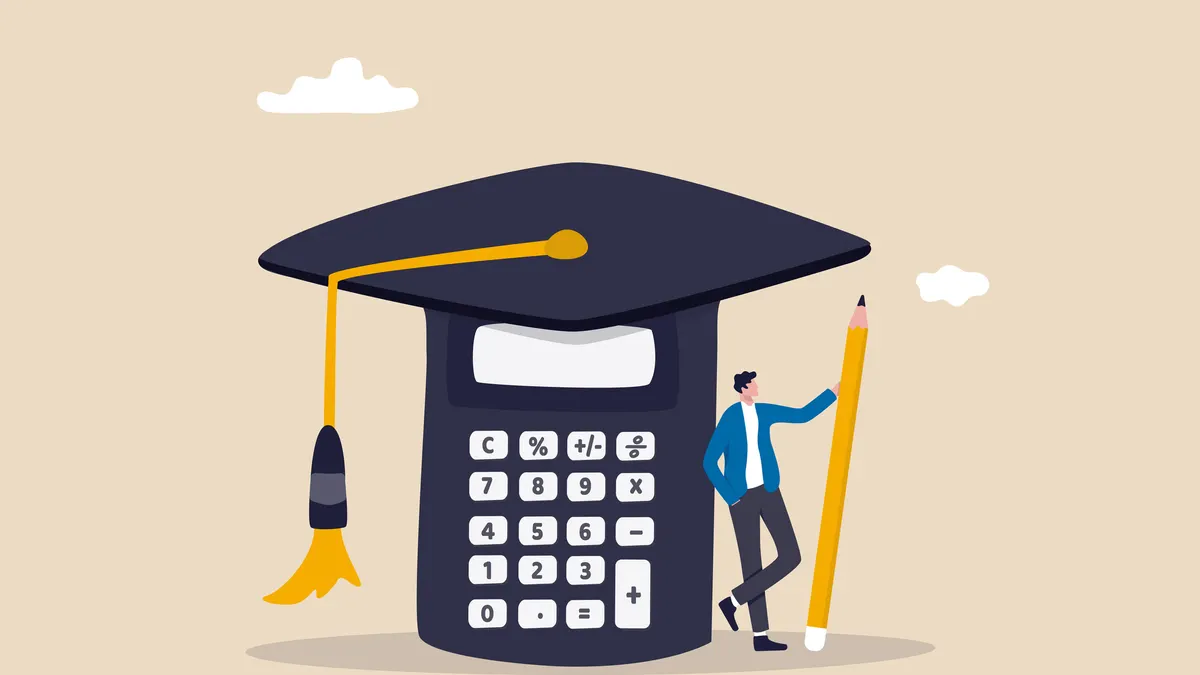The number of college students completing bachelor’s degrees in accounting at U.S. universities fell 7.8% in the 2021-2022 school year, continuing a downward trajectory that started in 2016-2017. The number earning master’s degrees in accounting fell about 6%, to 18,238.
The tallies come from a report by the Association of International Certified Professional Accountants (AICPA), released on October 12.
The numbers confirm the feeling among CFOs that the shortage of accountants results from fewer people studying finance disciplines at institutes of higher education.
But it’s not the whole story. First, the 7.8% fall in 2021-2022, to 47,067 bachelor’s degrees completed, occurred during the pandemic, “when U.S. university enrollment and earned degrees collectively shrank,” said Jan Taylor, the AICPA’s academic in-residence. (Although the overall decline in college enrollment was lower — about 3%, according to the National Center for Education Statistics.)
Second, three-quarters of university bachelor’s degree programs surveyed by the AICPA expected the slippage in enrollment to arrest itself or reverse in the 2023-2024 school year.
Similarly, fewer candidates took the CPA exam in 2022 (the latest year for which data are available). CPA exam test-takers fell to 67,355 last year, down from 72,271 in 2021. The number of unique CPA candidates peaked in 2016 at 102,291, but has fallen yearly.
But, as with accounting graduate trends, the number of CPA exam sections taken in 2023 is on the upswing, said the AICPA.
That’s partly because some candidates are rushing to complete requirements before a new CPA licensure model takes effect in 2024. The new model requires deeper expertise in one of three disciplines: information systems and controls; tax compliance and planning; or business analysis and reporting.
The relatively low base salary for accountants at public accounting firms is cited as one reason for the decline in new entrants to the profession. The average base starting salary at public accounting firms increased $5,000 to $50,000 in fiscal year 2022, according to the AICPA. (According to September 2023 numbers from Bankrate, the average college graduate's starting salary this year is $58,00, but other surveys report higher amounts.)
The Bureau of Labor Statistics (BLS) estimates the median pay for all accountants and auditors as of May 2022 was $78,000 annually.
Job Leavers Adds to Shortage
As with all kinds of jobs, the accountant shortage is not just the shrinking population of fresh accounting graduates. Demand is up, largely due to accountants and auditors leaving the profession.
More than 300,000 of them left their jobs in the past two years, according to a December 2022 Wall Street Journal story. Recruiters say many of those people have moved into finance and tech jobs.
The robust economy and tight jobs market haven’t helped — accounting jobs are primarily seen as recession-proof, but that might matter less when the chances of a near-term recession have fallen.
Regardless, the demand picture for accountants and auditors is robust. According to The BLS, job openings for accountants and auditors are projected to grow by 4% from 2022 to 2032. The BLS says about 126,500 openings for accountants and auditors are projected each year, on average.
“Many of those openings are expected to result from the need to replace workers who transfer to different occupations or exit the labor force, such as to retire,” the BLS said in its occupational outlook handbook.
Despite the lower overall number of CPA exam-takers in recent years, 60% of the surveyed public accounting firms expect to have the same or higher number of CPAs on staff in 2023 compared with 2022. Only 2% project a decline.
“Many of those openings are expected to result from the need to replace workers who transfer to different occupations or exit the labor force, such as to retire."

Bureau of Labor Statistics Occupational Handbook
In an unusual admission, the AICPA said it could not accurately project the number of graduates hired into public accounting in 2021, a statistic its Trends report usually includes. That was because “the response rate from accounting firms on their hiring practices was too low to be statistically valid,” said Taylor.
Taylor also noted that the AICPA Trends survey does not include college graduates hired into sectors outside public accounting.
The survey of colleges and universities granting accounting degrees had 97 participants, while the public accounting firm survey had 356 participants.














